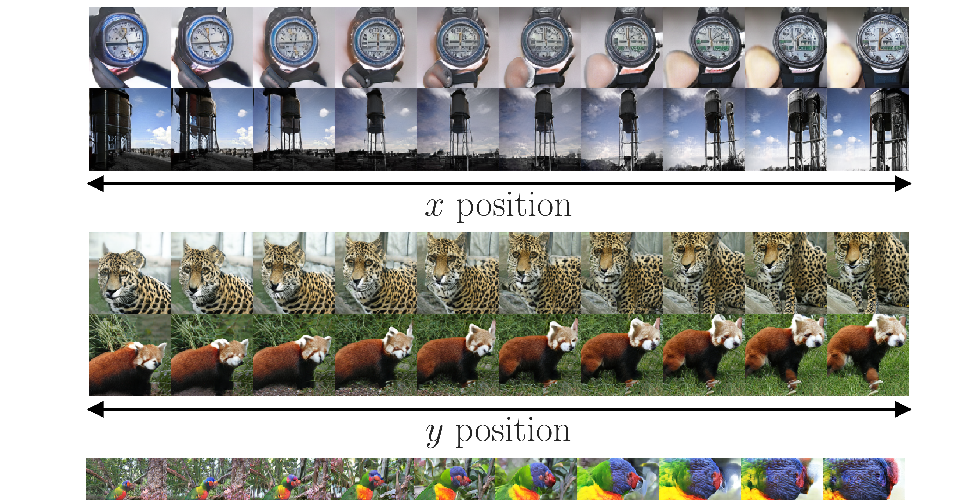Abstract:
Variational Autoencoders (VAEs) provide a theoretically-backed and popular framework for deep generative models. However, learning a VAE from data poses still unanswered theoretical questions and considerable practical challenges. In this work, we propose an alternative framework for generative modeling that is simpler, easier to train, and deterministic, yet has many of the advantages of the VAE. We observe that sampling a stochastic encoder in a Gaussian VAE can be interpreted as simply injecting noise into the input of a deterministic decoder. We investigate how substituting this kind of stochasticity, with other explicit and implicit regularization schemes, can lead to an equally smooth and meaningful latent space without having to force it to conform to an arbitrarily chosen prior. To retrieve a generative mechanism to sample new data points, we introduce an ex-post density estimation step that can be readily applied to the proposed framework as well as existing VAEs, improving their sample quality. We show, in a rigorous empirical study, that the proposed regularized deterministic autoencoders are able to generate samples that are comparable to, or better than, those of VAEs and more powerful alternatives when applied to images as well as to structured data such as molecules.

